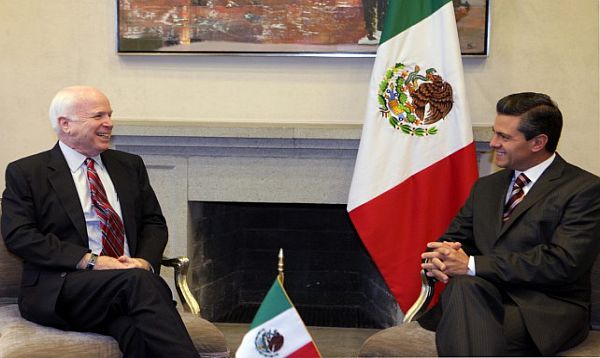Mexico City - A poll conducted last week showed Mexican President Enrique Pena Nieto has a lower approval rating at the start of his term than his predecessor did, underscoring the challenge he faces to push key economic reforms through a divided congress.
Less than three months into office, 56 percent of Mexicans approve of Pena Nieto as president compared to twenty-nine percent who disapprove of the job he is doing, according to a survey by Buendia y Laredo.
After 12 years of opposition rule, Pena Nieto returned to power his centrist Institutional Revolutionary Party (PRI,) which ruled Mexico for most of the past century.
Pena Nieto’s ranking is below the 58 percent approval rating scored by former President Felipe Calderon at the start of his own term. Some 26 percent disapproved of Calderon at the time.
Last week’s poll was based on face-to-face interviews with 1,000 people and reported a margin of error of 3.5 percent.
Pena Nieto has promised to push through a series of economic reforms, including tax legislation and an overhaul of the lumbering state-run energy sector, which the last two presidents failed to drive through a divided Congress.
Calderon, from the conservative National Action Party (PAN,) failed to win support for his major economic plans in the country’s Congress, where no party holds a majority. He was able to pass only minor tax and energy reforms while in office.
Pena Nieto managed to quickly push through an education reform bill and pass his first budget but he still will have to prove that a political pact forged with opposition parties will be strong enough to quickly move other reforms.
Just after his election, Pena Nieto sealed a broad accord dubbed the "Pact for Mexico" with leftist and conservative opponents that includes a timetable to discuss major reforms this year.
"Pena Nieto has an important advantage over Calderon. It has been many years since there has been such a wide agreement between political parties," said Javier Oliva, a political analyst at the National Autonomous University of Mexico.
"His rating will stabilize as they begin achieving these important agreements," Oliva said.


